#Paolo grassi
Explore tagged Tumblr posts
Text
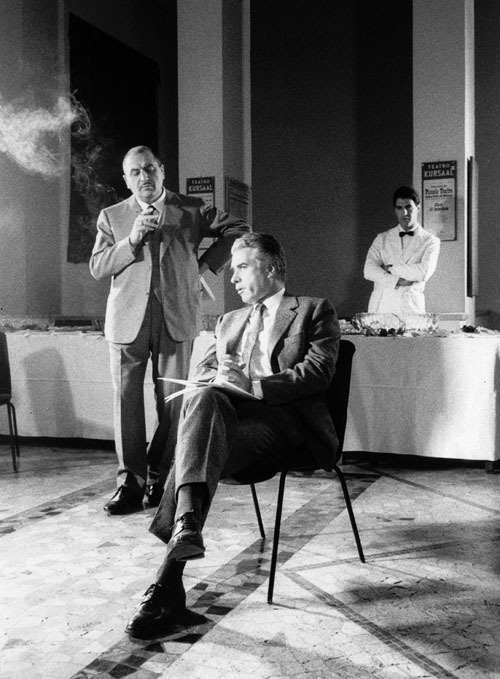
Paolo Grassi e Giorgio Strehler presentano la stagione del Piccolo Teatro di Milano 1964
3 notes
·
View notes
Text

Corso Ex-tra 2022/23 presso la Civica Scuola di Teatro "Paolo Grassi".
Acting Technique - Corso di recitazione cinematografica.
La preparazione attoriale al lavoro con la macchina da presa.
https://teatro.fondazionemilano.eu/docenti/lucilla-miarelli
0 notes
Text
Ah vabbè è tutto chiaro ora
1 note
·
View note
Text

Chapter 44.2
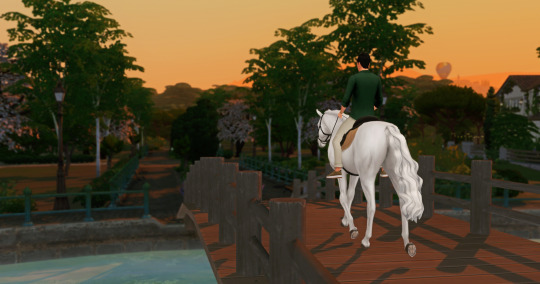
Summer is coming to an end, and the warm glow of the early evening bathes everything in gold, casting long shadows and making everything seem almost dreamlike. The sturdy planks of the bridge creak slightly as we cross, the sound blending with the gentle thuds of hooves against wood and the faint rush of the river below. In the distance, the constant song of the waterfalls form a faint, rumbling backdrop.
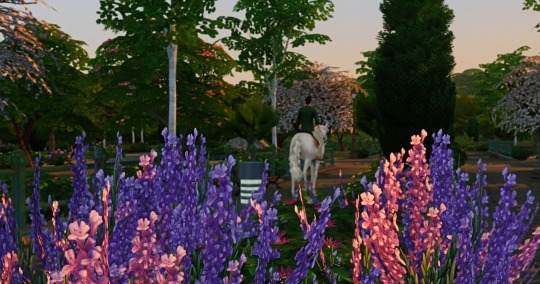
The sound of Serafina’s hooves changes as we leave the bridge and turn onto the cobbled stone road that leads to the estate. On evenings like this, I love Tartosa so much it makes my heart ache, and I wonder why I ever leave. The air smells sweeter here than anywhere else, a hint of saltwater mingling with the ever-present lavender and the more subtle, grassy notes of the earth itself.
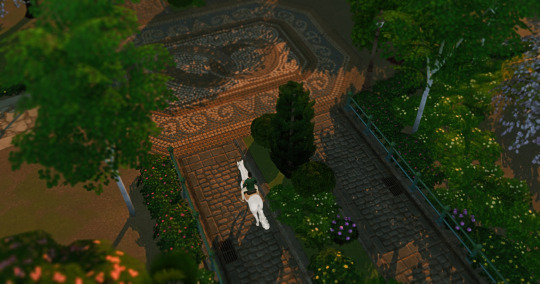
I slow Serafina down as we reach the large mosaic that marks the crossroads. The colour has faded slightly with time, but the motif is as clear as ever, two intertwined wedding bands surrounded by the waves of the Tartosan sea. My great-grandparents commissioned it for an anniversary years before I was even born, a tribute to their love story carved into the very ground.
Serafina tosses her head impatiently, the reins tugging on my hands and pulling me out of my reverie. I feel her muscles tense up under the saddle, and she paws at the ground with her foreleg, restless.
“Sorry, girl,” I murmur. “We’ll go back to your baby now.”
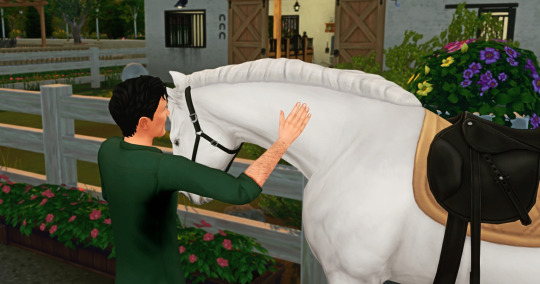
I dismount as soon as we reach the paddock, stroke her neck and thank her for the ride. The light sheen of sweat on her coat is warm against my palm, but her focus is not on me anymore. Her tail swishes in agitation as a delicate, high-pitched nicker can be heard from the stables and I quickly open the gate and lead her through.
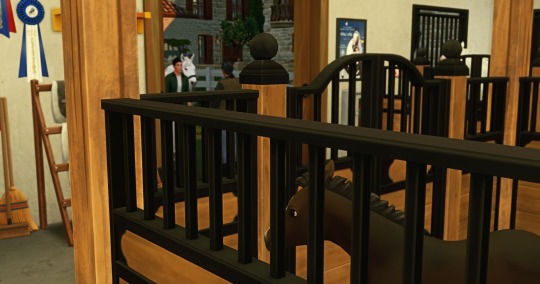
My uncle Gio waits for us in the doorway, brushing bits of hay off his gloves. Behind him, Serafina’s foal whinnies excitedly at the sight of its mother.
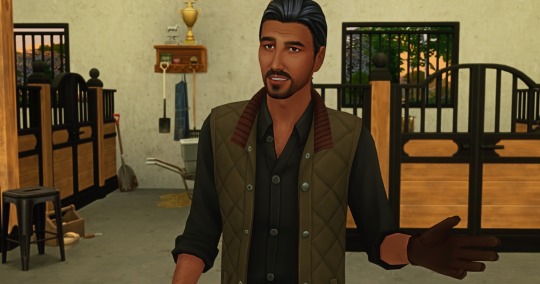
“There you are. How did it go?” He takes the reins from my outstretched hand and lets the impatient mare into her stall.

“She did great, she’s definitely getting her strength back. I let her gallop along the coast for a bit, you should have seen her. She was practically flying.”
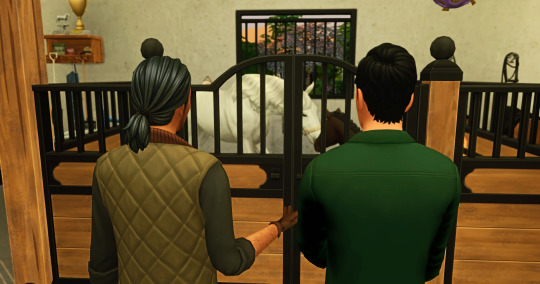
“That’s my girl,” Gio mumbles softly, almost to himself. “Thanks for taking her out, she needed the exercise. As much as Sofia tries, she can’t ride all of them every day and school starts back up soon. How long are you staying this time?”
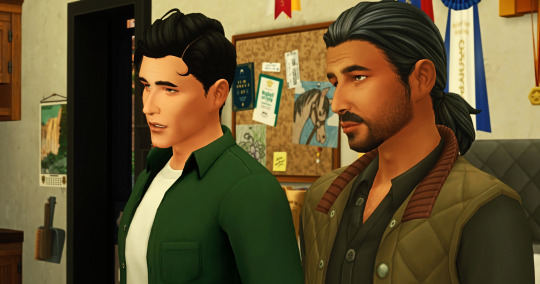
“I haven’t decided yet. Another week, maybe more. I need a break from everything, some time to figure out what to do next.”
“And a week or two is enough for that?”
“It’s a start. I’ll be fine, you know me, Gio.”
“Exactly, I know you. Well, tell your aunt I’ll be in soon, I’m almost done here.”
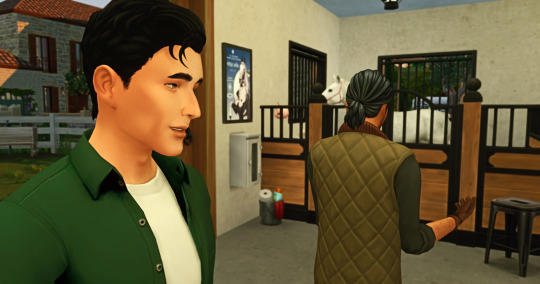
“You don’t want any help?”
He laughs, waving me off.
“You were always more useful in the kitchen, my boy.”

As soon as I open the heavy front doors of the main house, I’m met with the sound of laughter. Aunt Teresa is wiping tears of mirth from her eyes as they both turn to me.
“Hi mum, Teresa. What’s so funny?”
My mother lights up at the sight of me, and I hurry over to give her a hug before she can attempt to stand.
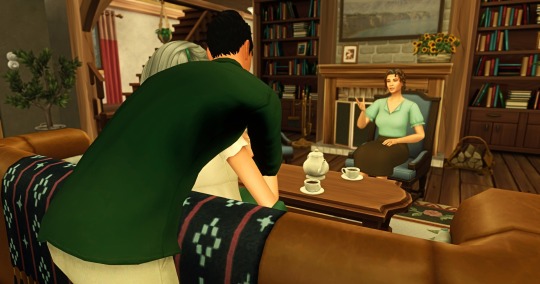
“Paolo, did you happen to see Giovanni out there? Is he coming in too?”
“Soon, zia, he’s just making sure the vineyard doesn’t run out of fertiliser.”
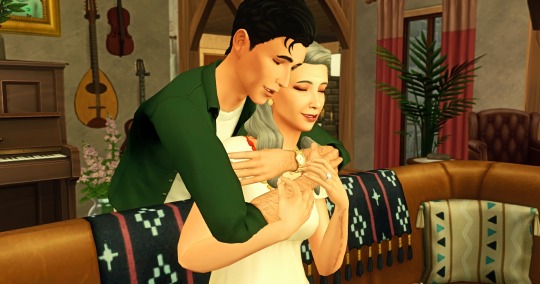
My mother laughs, giving my arm a feeble squeeze with her left hand. “I don’t think that’ll happen any time soon.”
“Well, we better not take any chances, mum. The entire Romeo fortune could be at stake, and I’m currently unemployed.”
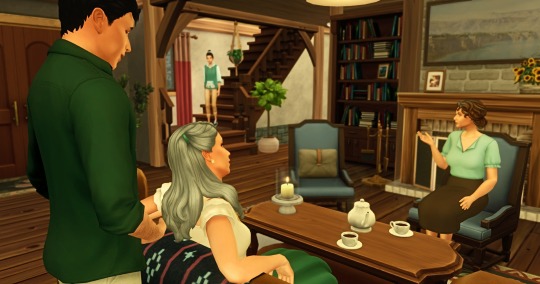
Teresa shakes her head, smiling, then calls towards the stairs. “Sofia? Come down, please.”
Seconds later, my youngest cousin skips down the stairs.
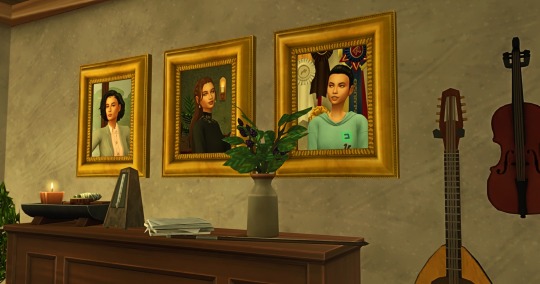
Her older sisters, Laura and Anna, both moved out years ago, but Sofia was a late surprise addition, still just a baby when I first moved to Del Sol Valley. To Gio’s endless joy, Sofia is just as obsessed with the horses as he is.
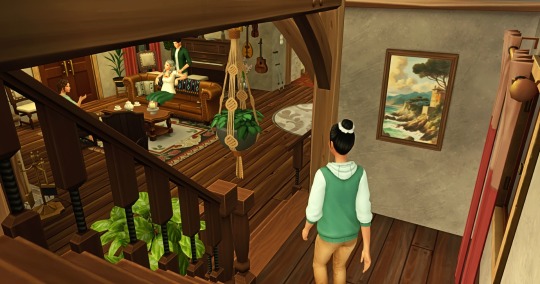
“Sofia, you can do your piano lesson while I make dinner. Is that alright with you, Rose?”
My mother nods and carefully gets up and walks to her usual chair by the piano. Her steps are agonisingly slow but dignified, and I resist the urge to help her, instead distracting myself by picking a few white horse hairs off my shirt.
Teresa disappears into the kitchen, and I opt for simply taking the shirt off before following her.
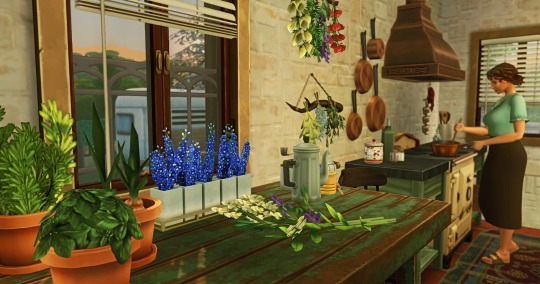
A copper pot simmers on low heat on the old stove. Teresa’s kitchen was always my favourite room in this house, filled with delicious smells and tastes. Ever since I could walk, I kept ending up in the kitchens, both here and at the vineyard, and my grandmother and aunts never hesitated to put me to work.
There are herbs everywhere, clay pots of fresh basil and oregano. Recently picked thyme and sage, still with their purple flowers, hangs from the ceiling and fills the air with their fragrance.
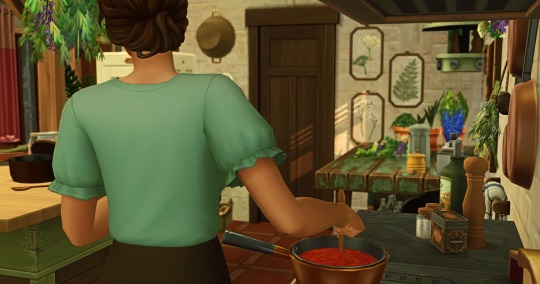
Teresa points to a bunch of ripe tomatoes by the sink, drying next to the carrots and zucchini she picked earlier.
“You can start by slicing the tomatoes.”
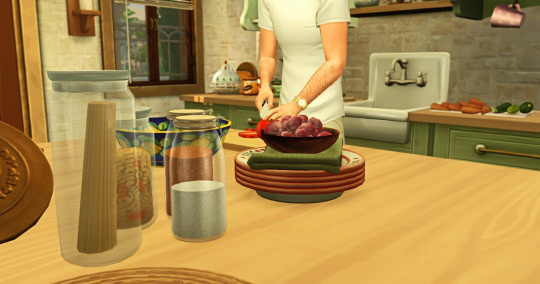
I wash my hands and begin cutting. There’s a small bowl of large, juicy grapes from the vineyard on the table, and I pop one into my mouth. The taste brings back memories of long summers helping out with the harvest, of sun and dirt and the first time I was allowed to taste the family wine.
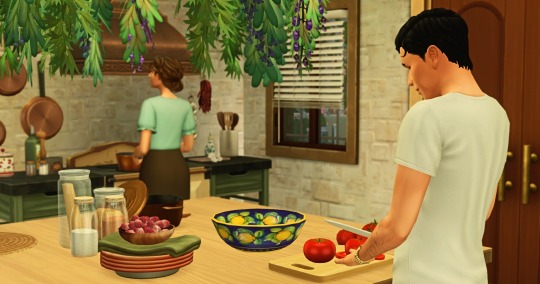
“How are things over in Del Sol? Your mother says you’re no longer doing voices?”
“Yeah, the show I was working on has ended. But one of my friends is trying to set me up with her agent. For movie roles, I mean.”
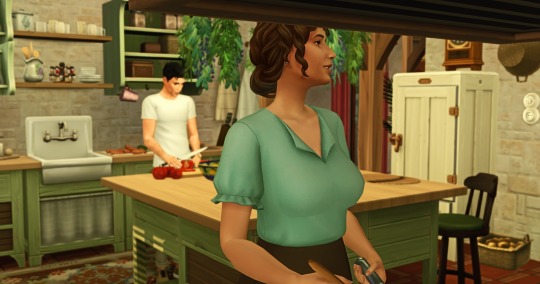
“You’re going back to movies? That sounds wonderful! You were so happy back when you did that.”
I know for a fact that Teresa hasn’t watched a single second of Llama Man’s adventures, animated or otherwise, but she was always supportive.
“Yeah, I’m still considering it, but…”
A wildly off-key chord sounds from the living room, followed by laughter as my mother explains something and Sofia starts over.
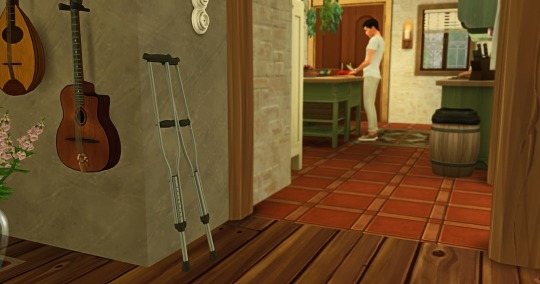
I glance at the crutches leaning against the wall and lower my voice slightly, although my mother is unlikely to hear me over Sofia murdering a Tartosan folk song.
“How is she doing? When I’m not here, I mean?”
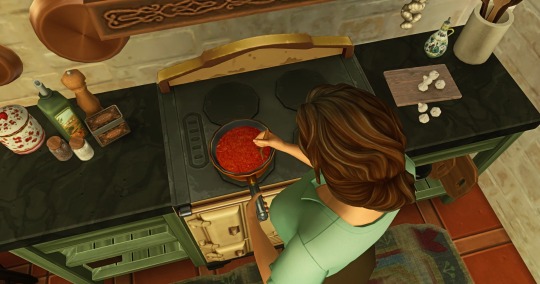
“You always worry too much, tesoro. Your mother is fine.”
“I know, I just… I haven’t been home much lately.”
“You’ve been busy. It’s understandable, you have your own life over there.”
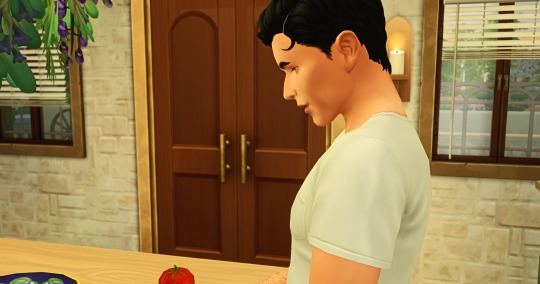
“But now that… There’s nothing that really keeps me over there right now. And both her leg and her hand seems worse lately. I was wondering if I should take a longer break, stay home with her for a while…”
Teresa sighs.
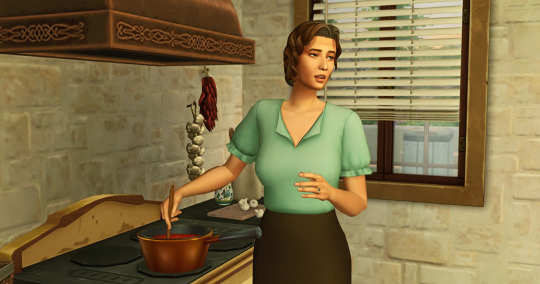
“Paolo, listen to me. It is not your job to replace your father. Your mother is happy. She has family, she has friends, she has so much joy in her life. You need to try and find some joy in your life too.”
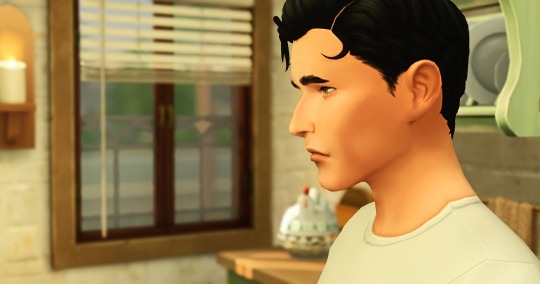
navigation / previous / next
#duchellilegacy#duchellichapters#duchelligen5#paul romeo#giovanni romeo#teresa romeo#sofia romeo#rose romeo
69 notes
·
View notes
Text
Nel nome dei Padri
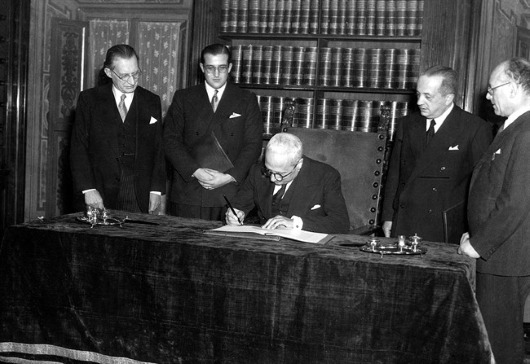
Il Presidente De Nicola firma la Costituzione. Alla sinistra dell'immagine: De Gasperi, alla destra: Terracini.
Qui sotto l'elenco dei membri della Commissione per la Costituzione (o Commissione dei 75).
Gruppo democristiano (26 membri)
Gaspare Ambrosini
Giuseppe Maria Bettiol (sostituisce dal 10 aprile 1947 Giacinto Froggio, dimissionario, che il 6 febbraio 1947 aveva sostituito Ezio Vanoni, divenuto ministro)
Pietro Bulloni
Giuseppe Cappi
Giuseppe Caronia (sostituisce dal 22 febbraio 1947 Giuseppe Togni, divenuto sottosegretario di stato)
Giuseppe Codacci Pisanelli
Camillo Corsanego
Luigi De Michele
Francesco Dominedò
Giuseppe Dossetti
Maria Federici
Giacinto Froggio (sostituisce dal 2 luglio 1947 Umberto Tupini, divenuto ministro)
Giuseppe Fuschini
Angela Gotelli (sostituisce dal 6 febbraio 1947 Carmelo Caristia, dimissionario)
Giorgio La Pira
Giovanni Leone
Salvatore Mannironi
Giuseppe Micheli (sostituisce dal 22 febbraio 1947 Umberto Merlin, divenuto sottosegretario di stato)
Aldo Moro
Costantino Mortati
Attilio Piccioni
Giuseppe Rapelli
Ferdinando Storchi (sostituisce dal 2 luglio 1947 Amintore Fanfani, divenuto ministro)
Emilio Paolo Taviani
Egidio Tosato
Giovanni Uberti (sostituisce dal 24 luglio 1946 Giovanni Ponti, dimissionario)
Gruppo comunista (13 membri)
Giuseppe Di Vittorio (sostituisce dal 10 dicembre 1946 Mario Assennato, dimissionario, che il 24 settembre 1946 aveva sostituito lo stesso Di Vittorio, dimissionario)
Edoardo D'Onofrio (sostituisce dal 27 febbraio 1947 Umberto Terracini)
Antonio Giolitti (sostituisce dal 29 maggio 1947 Riccardo Ravagnan, dimissionario)
Ruggero Grieco (Vice Presidente)
Nilde Iotti
Vincenzo La Rocca
Renzo Laconi (sostituisce dal 19 settembre 1946 Fabrizio Maffi, dimissionario)
Concetto Marchesi
Guido Molinelli (sostituisce dal 30 maggio 1947 Carlo Farini, dimissionario, che il 19 settembre aveva sostituito Giorgio Amendola, dimissionario)
Umberto Nobile
Teresa Noce
Antonio Pesenti (sostituisce dal 10 dicembre 1946 Bruno Corbi, dimissionario, che il 24 settembre 1946 aveva sostituito lo stesso Pesenti, dimissionario)
Palmiro Togliatti
Partito Socialista Italiano (7 membri)
Leonetto Amadei (sostituisce dal 10 dicembre 1946 Giovanni Lombardi, deceduto, che il 25 luglio 1946 aveva sostituito Alessandro Pertini, dimissionario)
Lelio Basso
Michele Giua
Ivan Matteo Lombardo
Pietro Mancini
Angelina Merlin
Ferdinando Targetti
Partito Socialista Lavoratori Italiani (6 membri)
Alessandro Bocconi
Emilio Canevari
Eduardo Di Giovanni (sostituisce dall'11 settembre 1946 Alberto Simonini, dimissionario)
Gustavo Ghidini (Vice Presidente)
Edgardo Lami Starnuti
Paolo Rossi
Gruppo Repubblicano (4 membri)
Giovanni Conti
Francesco De Vita (decaduto perché sottosegretario dal 22 dicembre 1947)
Tomaso Perassi (Segretario)
Oliviero Zuccarini
Unione Democratica Nazionale (4 membri)
Aldo Bozzi
Giuseppe Paratore
Giovanni Porzio
Vito Reale (sostituisce dal 16 giugno 1947 Giuseppe Grassi, divenuto ministro)
Gruppo Autonomista (3 membri)
Giulio Bordon
Piero Calamandrei
Emilio Lussu
Fronte liberale democratico dell'Uomo Qualunque (3 membri)
Francesco Colitto
Francesco Marinaro (Segretario)
Ottavio Mastrojanni
Gruppo Liberale (3 membri)
Bartolomeo Cannizzo (sostituisce dal 14 dicembre 1946 Gennaro Patricolo, dimissionario, che il 24 luglio 1946 aveva sostituito Ottavia Penna Buscemi, dimissionaria)
Orazio Condorelli (sostituisce dal 17 ottobre 1947 Roberto Lucifero d'Aprigliano, dimissionario)
Guido Cortese (sostituisce dal 27 giugno 1947 Luigi Einaudi, divenuto ministro)
Gruppo Misto (3 membri)
Gustavo Fabbri
Andrea Finocchiaro Aprile
Meuccio Ruini (Presidente)
Democrazia del Lavoro (2 membri)
Mario Cevolotto
Enrico Molé
Unione Nazionale (1 membro)
Pietro Castiglia
Fonte: Wikipedia.
18 notes
·
View notes
Text

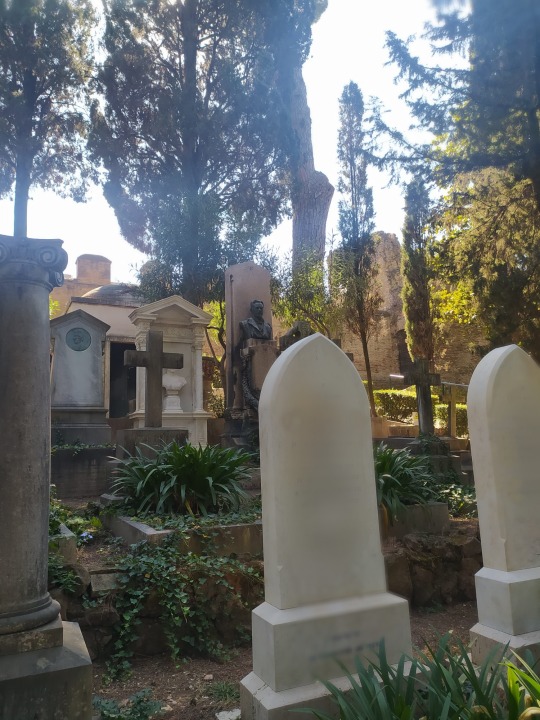


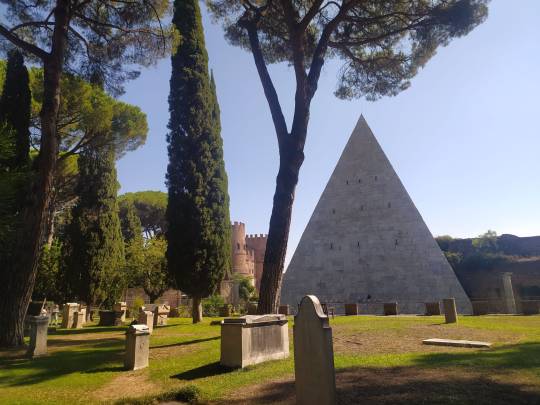
Non-Catholic Cemetery, Rome, Italy. It is near Porta San Paolo and adjacent to the Pyramid of Cestius, a small-scale Egyptian-style pyramid built between 18 and 12 BCE as a tomb and later incorporated into the section of the Aurelian Walls that borders the cemetery. It has Mediterranean cypress, pomegranate and other trees, and a grassy meadow. It is the final resting place of non-Catholics including but not exclusive to Protestants or British people. The earliest known burial is that of a Dr Arthur, a Protestant medical doctor hailing from Edinburgh, in 1716. The English poets John Keats and Percy Bysshe Shelley, as well as Russian painter Karl Briullov and Italian Marxist Antonio Gramsci are buried there. Since the norms of the Catholic Church forbade burying on consecrated ground non-Catholics – including Protestants, Jews and Orthodox – as well as suicides (these, after death, were "expelled" by the Christian community and buried outside the walls or at the extreme edge of the same), burials occurred at night to avoid manifestations of religious fanaticism and to preserve the safety of those who participated in the funeral rites.
12 notes
·
View notes
Text
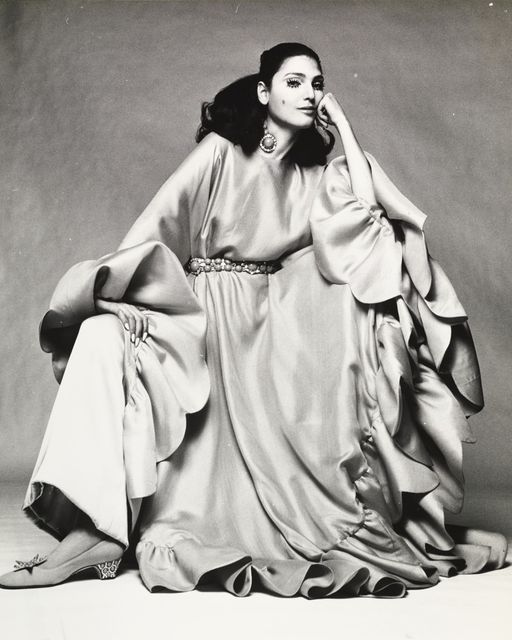
Attrice, modella e femminista radicale italiana, Benedetta Barzini nasce il 22 settembre 1943. Prima modella italiana a comparire sulla copertina di Vogue nel 1965, fu habitué della Factory di Andy Warhol e dell’underground newyorkese, posando per Richard Avedon, Irving Penn, Franco Rubartelli e Gian Paolo Barbieri, come in questo scatto iconico in mostra a Palazzo Grassi.
Impegnata in politica presso l’Unione delle donne d’Italia, Benedetta Barzini si interrogò sulla reificazione delle donne nel mondo della moda e insegnò antropologia della moda al Politecnico di Milano, alla Nuova Accademia di Belle Arti di Milano e all’Istituto di Arte Applicata e Design di Torino.
Benedetta Barzini, with a Valentino and Coppola e Toppo Jewelry, © Gian Paolo Barbieri, Vogue US 1969
12 notes
·
View notes
Text
Gian Maria Volonté, Moscow, 1974
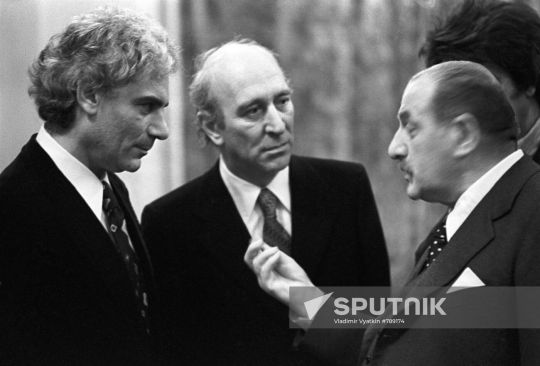
From left) Italian actor Gian Maria Volonte, film director Giuliano Montaldo and Paolo Grassi, the director of "La Scala" Opera Theatre in Milan, at the evening dedicated to the opening of the Week of Soviet-Italian Friendship in the Grand Hall of the Moscow P.Tchaikovsky State Conservatoire, Moscow. 1974.
Source : https://sputnikmediabank.com/media/789174.html
영화 밖에서 GMV가 넥타이를 매고 있는 희귀한 사진이다 😉
2 notes
·
View notes
Text
BE INTERNATIONAL together
Martedì 5 marzo è iniziata a Scenario Pubblico la settimana dedicata a Be International un progetto «selezionato per la seconda volta tra i vincitori della quarta edizione del bando Boarding Pass Plus del MIC che incentiva l’internazionalizzazione delle carriere dei giovani artisti e dei giovani organizzatori italiani attraverso un percorso di formazione e di esperienze da sviluppare all’estero e in Italia».
Capofila del progetto è la Civica Scuola di Teatro Paolo Grassi di Milano relazionata a partner nazionali (Bolzano Danza, Festival Ipercorpo, COORPI, Festival Prospettiva Danza, Scenario Pubblico) e internazionali (Festival KoresponDance, Nu Dance Festival, Art Republic, Chrysanthi Badeka, Machol Shalem, Quinzena de Dança, Centre de vidéo-danse de Bourgogne).
Il workshop intensivo svolto a Catania fino a domenica 10 marzo è stato dedicato alla video danza ed è stato tenuto da Chrysanthi Badeka, partner internazionale di Be International, nonché danzatrice, coreografa e video maker ateniese.
Attraversiamo brevemente in questo diario il "succo" di ogni giorno - con punti, immagini, citazioni - consapevoli che l'essenza di questa esperienza sia (giustamente) impossibile da trasmettere nella sua globalità.

Il primo incontro si è svolto martedì pomeriggio, durante il quale tutti i partecipanti si sono presentati attraverso la condivisione di un lavoro performativo in video, sia proprio che di altri autori.
Dalle visioni video Chrysanthi ha esordito presentando la dance on screen come
un linguaggio diverso, peculiare, che non ha a che fare con la documentazione e dunque la "semplice" ripresa di un evento performativo.
mercoledì. La prima giornata si è aperta con un esercizio dei corpi nello spazio. L'obiettivo è stato quello di immaginare di essere ad una festa all'interno della quale gli occhi di ognuno dovevano concentrarsi per diventare come le ottiche di una camera. Dal lavoro è scaturita una scaletta dei movimenti degli occhi-camera per ognuno diversa. Divisi in coppie, director - camera operator, ognuno ha poi realizzato il proprio long shot (piano sequenza) immaginato con strumenti amatoriali.
dentro la grammatica. Chrysanthi ha guidato il gruppo in un percorso analitico del linguaggio filmico specifico della danza dove esistono la VIDEO DANCE o SCREEN DANCE o DANCE FOR CAMERA - ovvero un prodotto audiovisivo breve - e il DANCE FILM - cioè un prodotto audiovisivo più lungo e articolato. In entrambi i casi il corpo umano e il corpo della camera dialogano tra loro - come nella contact improvisation - collaborando per la trasmissione di una storia. Quindi, la scelta della location, insieme a ogni sua possibile angolatura, risulta importante poiché sarà la camera a guidare lo sguardo degli spettatori, un po' come è accaduto durante l'esercizio del "party", in cui ciascuno decideva attentamente dove indirizzare il proprio sguardo. Da esso vengono a svilupparsi una storia e una drammaturgia:
parole -> inquadrature frase -> scena paragrafo -> sequenza capitolo -> macro-sequenza libro -> film
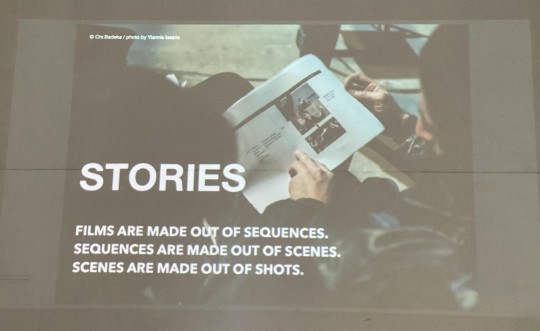
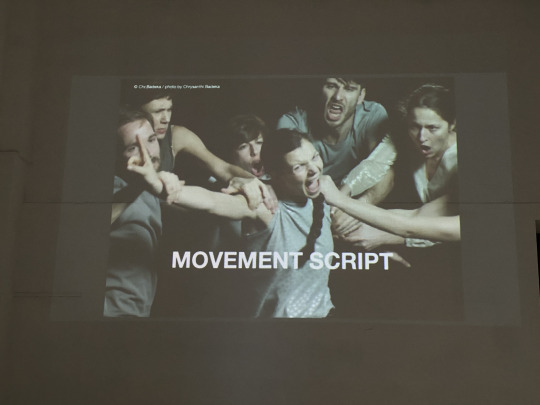
Come guardo? Cosa? A che altezza? Da quale angolatura? A quale distanza?
Prima di creare sono molto importanti le prove corpo-camera affinché possa essere deciso un movement script consapevole. Si ritorna allora alla location che, oltre ad essere scelta, deve essere visitata, studiata e vissuta più possibile per poi essere ri-mappata in studio. Dallo script dei movimenti (corpo - corpo camera) emergeranno o dovranno essere decisi tutti gli altri elementi da sviluppare: scene, costumi, musica e tutti gli altri aspetti della post-produzione.
longline synopsis script storyboard decoupage
Per poter comunicare bene con quel linguaggio tecnico Chrysanthi ha mostrato due lavori di video danza grazie al quale è stato possibile consolidare la terminologia della grammatica filmica in inglese e, allo stesso tempo, provare a estrapolare longline e synopsis da due opere a posteriori. Fare questi esercizi è servito a tutte e tutti a capire di più anche del proprio sguardo, tappa necessaria per chi vuole sviluppare propri progetti autoriali.

giovedì. Dopo aver assistito alla performance Body Teaches della CZD Chrysanthi ha guidato le riprese del party del giorno prima stavolta con il gimbal. Ognuno ha ripreso la propria festa e dopo sono stati proiettati tutti i video: un esercizio dello sguardo attivo. Alla fine della giornata, ognuno ha presentato la propria idea di progetto, con la lettura della logline e della sinossi. Insieme poi, si è presa la decisione su quale idea realizzare.
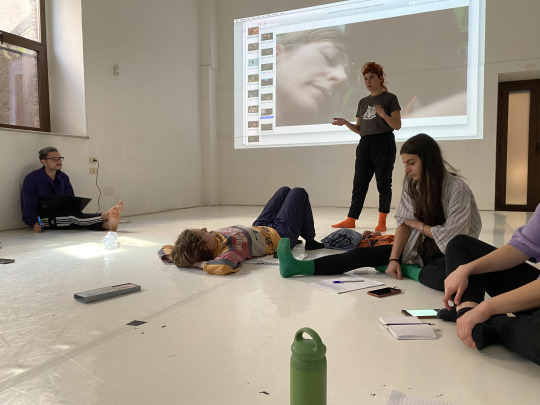
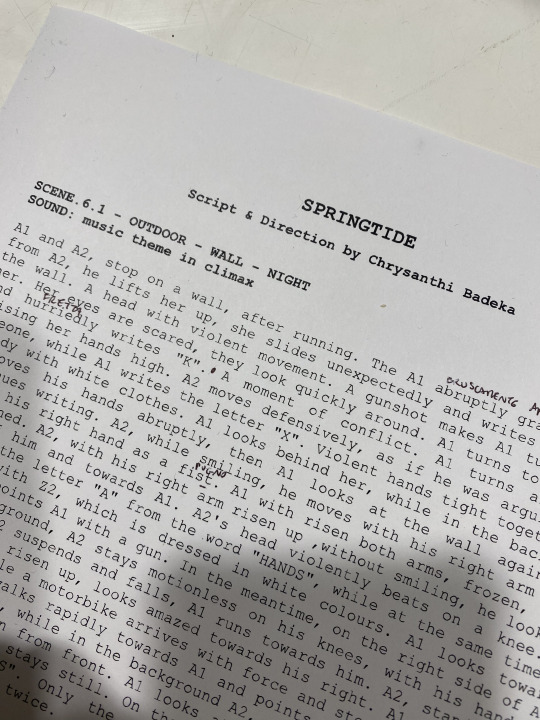


Il progetto che ha convinto tuttə è stato quello di Alessandra Indolfi, director, quindi, del corto realizzato.
TRE GIORNI INTENSI NEL WORKSHOP INTENSIVO.
venerdì. E' stato svolto tutto il lavoro di pre-produzione: lavoro coreografico in studio insieme alla director e al camera operator scelta dei costumi scelte del suono composizione dei soli divisi in tre gruppi con rispettivi director, cinematographer e assistenti sopralluogo a villa Bellini.
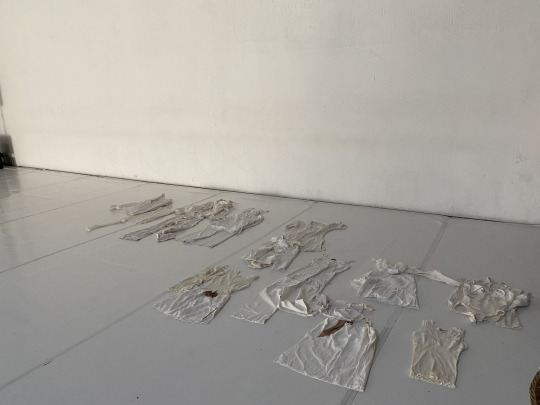
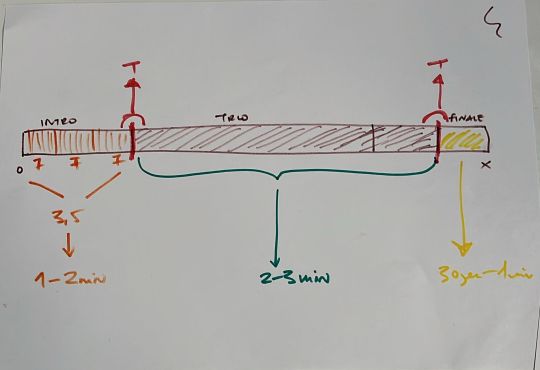
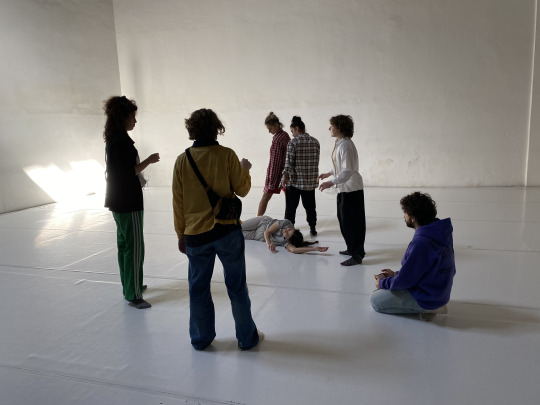
sabato. giornata di riprese
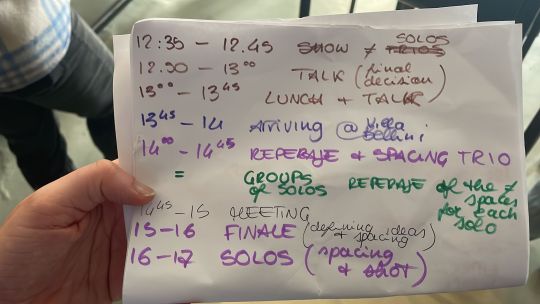
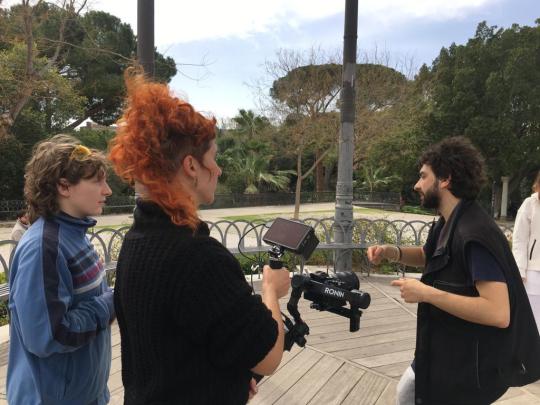

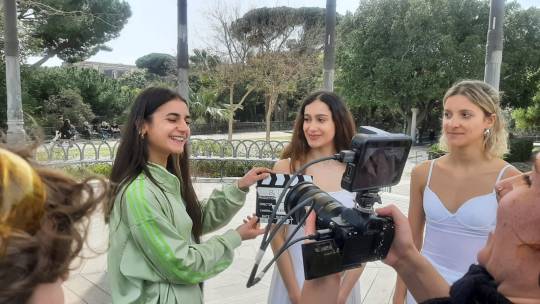
domenica. editing e presentazione del lavoro.

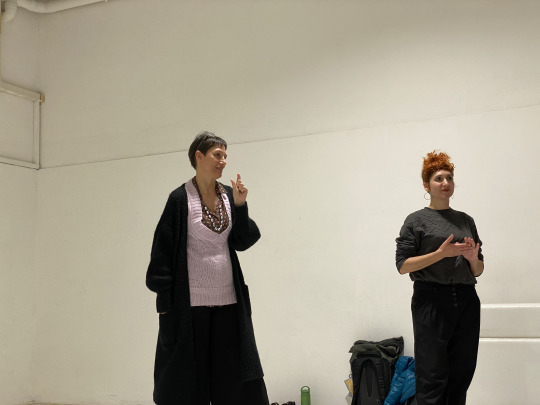
a sinistra Lucia Carolina De Rienzo (COORPI) a destra Chrysanthi Badeka.
IL PROGETTO UNTIED HANDS
Torna sovente e prendimi, palpito amato, allora torna e prendimi, che si ridesta viva la memoria del corpo, e antiche brame trascorrono nel sangue, allora che le labbra ricordano, e le carni, e nelle mani un senso tattile raccende. Torna sovente e prendimi, la notte, allora le labbra ricordano, e le carni... (Torna di Konstantinos P. Cavafis)

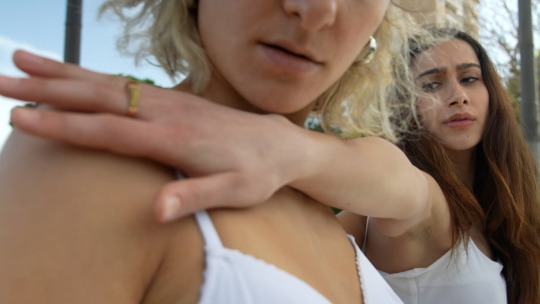

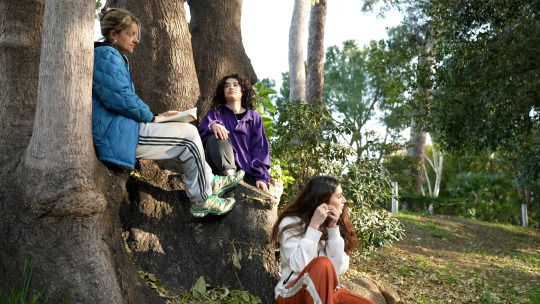
creato da Alessandra Indolfi Carmine Dipace Eros Brancaleon Mariangela Di Santo Melania Caggegi Roberta Indolfi Siria Cacco Sofia Bordieri Veronica Messinese Vanessa Lisi
Special thanks to Chrysanthi Badeka, Mara Serina, Lucia Carolina De Rienzo.
#scenariopubblico#catania#danza contemporanea#danceonscreen#beinternational#civicapaolograssi#danza#filming
2 notes
·
View notes
Text
𝐒𝐚𝐭𝐮𝐫𝐧 - 𝐏𝐚𝐫𝐭 𝐅𝐨𝐮𝐫
Masterlist | Part Three
Word Count: 1.5k
January 1996
A unique education has been ingrained in your people dating back to the beginning of them. The ancient recherche teachings were practically considered tradition. Elemental education consisted of the sciences, linguistics, melee, philosophy, universal history, and just about everything else. It was disciplined, demanding, and most of the time, dreadfully boring. But it was required.
By 6, you, Paolo, Fina, and Delfie had a linguistics repertoire that had already surpassed seven languages. Including the archaic forms of inter-Elemental communication, Gaianus.
By 8, you four were well informed about the many realms of magic. The existence of the Asgardians, sorcerers, dimensions, the concept of the multiverse, and having an Eldritch sling ring to practice with in a place none of you kids were allowed to know.
By 10, you all began developing techniques for elemental combat and melee. From channeling shields of sunlight, breathing fire, taking a fight up into Mount Gaia’s dense clouds, to rippling the ground to knock out one another. Other times, it was simple hand to hand combat with Franca.
By 12, you embarked upon the ancient disciplines of detection and manipulation, the Aran Orionian. A long, disciplined, complex, and tedious study of many teachings involving autonomy, chemical compositions, and element analysis. Though torturously boring, it was responsible for your ability to read people, to detect the vibranium casing King S’Yan’s body, and to control the sphere of power within yourself that maintained the secret. A sixth sense.
Training always came over any studies, plans, or friends. But failing any of those things would result in disappointed looks or being grounded. So, the four of you begrudgingly had to make it work.
____
There was a blur of a green clearing below your trembling hands and knees. It was as though the oxygen had been stripped from your lungs and a charging bus had slammed into you.
Rigorous pants clawed at the walls of your throat but the encompassed pain was rapidly subsiding.
“Get up! Again!” Franca’s demanding voice echoed in the forest clearing.
The winter snow had been cleared from the grassy plane for Sunday’s training. Paolo and Delfie were spent and disheveled watching the rounds between you and Franca. Fina watched nervously sitting beside the boys, reluctant for her upcoming turn.
You spat blood onto the ground. The Aran Orionian alarmed, spiking a rush of adrenaline through your veins.
Something was coming.
You swiftly threw your weight to the side and a blinding burst of glowing light shot past your eyes. The air smoked with truffles of gray. A small crater made home on the ground you were a mere second before. Your frightened stare shot toward Franca who was lunging toward you in flight, having chucked a spear of lighting a second from electrifying your face.
A shield of glowing sunlight conjured from thin air. The two of you began to fight again. However, it was short lived. Less than half a minute later, you were on your back once more, attempting to grasp a breath with Franca above you.
Her sharp Elemental eyes were green, completely green. The vibrant irises were swelled over the size of what a human’s should be. The sclera wasn’t white, just another tinted shade of the emerald tone.
“Don’t you think for a second that an opponent will wait for your re-gathering! They will come from behind and attack without provocation!!” Her voice was harsh on a rush of authoritarian adrenaline. Her deep skin was ethereally glowing, her body’s golden aureole crystalizing with her booming voice.
She continued: “You're in over your head! You move impulsively, ignorant to the consideration of consequence! Recklessness can not be spared if you don't have the necessary skill to get you out alive and unmaimed!"
Fina’s turn began and ended, and though her skills were good, she struggled against the tough opponent of her mother. Though you all loved her, there was an active resentment toward her after every combat round.
You all had recollected yourselves and stood in a spaced, horizontal line with backs straighter than pins preparing for the next sector of training.
Franca, barely disheveled, began again:
"Next, you will fight in pairs while I observe. Fina and Delfie, then Paolo and Alessa. The objective is subtle. Imagine you're fighting an opponent out there and they can't know what you really are. What will you do to use your gifts to your advantage but having it be invisible to the eye, and subtle enough to not raise any eyebrows?"
“There are an endless amount of methods to choose from. Thhere are many such techniques from the Aran Orionian, extracting the opponents oxygen, stunning the cerebellum, dehydrating the body. Or take to the Polydorus techniques of silent conjuration of chemical stunners."
She didn't talk about her "work" often. You all knew she was a journalist, quite a successful one. But you all knew, she was more than just a journalist. Same with your mother and Zio Luca. By the way she speaks of these acts without wincing, how meticulously refined her element and physical melee tactics were, how swift and silent moving her methods were..... she has to use them regularly.
“But, I want to see something new. Something I can not predict. Begin.”
After the session, winded and exhausted, you went to Franca. She had just finished critiquing Delfie's finger positioning.
"Baby, I hope you were able to retain some of it." She was always softer afterwords, but a nightmare during. "Unfortunately, it is the hurt that teaches us." She wrapped her arm around you and squeezed your shoulder.
"Unfortunately." You sighed. "Can I talk to you about something?"
"What's on your mind, baby?"
You abruptly vented about the UN. Everything about annoying cameras, you and Goldman’s talk, and T'Challa's reasoning of it all. Her demeanor cooled after your speech. Her heart rate lowered chillingly and the typically relaxed muscles of her face were stiff.
“What is it?” you asked. “Is there something wrong?”
"I wish you'd talk to your mother about this." She said, disappointedly.
"She's already paying for the plane tickets and they're not cheap. She's going to get mad at me for any sort of complaining."
"At the end of the day, she's your mother, Alessandra. She's the only one you will ever have. Pushing her buttons may be my favorite hobby, but I have to respect that she has final say on what of it you will be told."
What?
"‘What I'll be told?’" You repeated.
Her warm aureoled, Sphinx face expressed irritated regret. "Gaia, damn it." She cursed under her breath and stomped her foot into the grass. "I curse my tongue!" she shouted at the dusk sky above.
"What do you mean, Zia?"
"Merda-- just-- just talk to your mother, understand me? She'll tell you what you need to know."
"What I need to know? But that won't be anything." You grew frustrated. Not at Franca, but the idea of having to face your mother.
"I'm sorry, baby." She frowned, sliding her calloused hands down your sweaty cheeks.
"Instead of Work Saturday, I'll give you an extra session."
"But I need the money for Madrid." You sighed, disappointed. Franca shook her head and lifted your chin with her finger.
“My office needs rearranging. Train for three hours, organize for three hours, and I'll give you enough for sweets and souvenirs."
You hugged her tight. “Thanks, Zia."
She squeezed you tightly. "Remember to slip in some Cerveza's in your case on your way home, aye?" She winked green in green eye, mischievously. You chuckled and returned the wink.
As always, the training ended with you all on your knees, thanking and sending love to Gaia. Your heads would press the ground along with the palms of your hands. Then sunlight would sprout through your fingertips, through the ground, and to the zenith of Mount Gaia. Every time, there was euphoric breeze you'd like to think was her.
As predicted, your mother told you nothing. Told you to continue on with the position, "do you're supposed to do," and get out of her office. A frustrated evening, a frustrated shower, and a frustrated flop of yourself onto your bed.
"Ouch!" You yelped. Your head collided against a hard object. You whipped around, rubbing your head though the pain was gone in seconds. You saw two panels of Kapok tree bark laid on top of your silk pillowcase. It was a thick booklet with a scribbled title, "Orion's tractate."
Hm. Orion? Why Orion? He was an Elemental hunter from the 1700s. One of the victims to the genocide. Other books described him as a bit of a loon. Apparently, he isolated himself in the thick of the Amazon, surviving only on nuts and river water. He was severely unfond of the Elemental and human race, only communicating when necessary. He would only befriend the wild Tapir's and often engaged in magicless combat with the monkeys.
You waringly examined the thick booklet, your curiosity admittingly spiked. The parchment was frayed and what looked to be an entire section being devoted to the blood splatters of his enemies.
"In Adoni's name..." you breathed incredulously.
Nonetheless, your fingers flipped to the first long page of chicken scratch. "What do you have to say, Orion?"
_____________________________________________
16 notes
·
View notes
Text
Married for ten years, in full crisis, thinking about divorce. But following a failed scientific experiment, they suddenly find one inside the body of the other. Credits: TheMovieDb. Film Cast: Andrea: Pierfrancesco Favino Sofia: Kasia Smutniak Michele: Valerio Aprea Maria: Marta Gastini Brancati: Andrea Bruschi Cristian: Gaetano Bruno Angelica: Paola Calliari Luca: Flavio Furno Anna: Francesca Agostini Tommaso: Sebastian Dimulescu La psicologa: Giselda Volodi Lo Foco: Luigi Diberti Ivan: Gabriele Falsetta Film Crew: Director: Simone Godano Story: Carmen Danza Story: Giulia Louise Steigerwalt Co-Writer: Daniele Grassetti Production Manager: Claudio Sorace Casting: Chiara Natalucci Costume Design: Maria Cristina La Parola First Assistant Director: Fabrizio Procaccini Line Producer: Paolo Lucarini Sound: Paolo Giuliani Production Design: Tonino Zera Original Music Composer: Andrea Farri Editor: Davide Vizzini Director of Photography: Michele D’Attanasio Producer: Matteo Rovere Producer: Roberto Sessa Delegated Producer: Chiara Grassi Delegated Producer: Gabriele Lilli Delegated Producer: Alessia Polli Location Manager: Lorenzo Catalano Production Coordinator: Katia Abbate Production Secretary: Luca De Giorgi Assistant Editor: Pierluigi Darino Assistant Editor: Lucia Sblendorio Script Supervisor: Claudia Nannuzzi Second Assistant Director: Claudio Aloia Second Assistant Director: Stefano Farina Camera Operator: Matteo Carlesimo Camera Operator: Andrea Arnone Assistant Camera: Danilo Caruso Boom Operator: Diego De Santis Set Decoration: Valeria Zamagni Makeup Department Head: Arianna Agosta Hair Department Head: Daniele Perosillo Gaffer: Loris Felici Key Grip: Raffaele Alletto Unit Manager: Vincenzo La Gatta Movie Reviews: Jolang: Andrea (Pierfrancesco Favino) and Sofia (Kasia Smutniak) are a lovely couple, indeed they were. Married for ten years in crisis, they think of divorce. But as a result of a scientific experiment by Andrea suddenly they find themselves one inside the body of the other. Literally. Andrea is Sofia and Sofia is Andrea. With no choice but to live each other’s existence and everyday life. You in the shoes of him, a brilliant neurosurgeon who carries out an experiment on the human brain, he in the shoes of her ambitious TV presenter on the rise.
0 notes
Text
CAMORRA E AFFARI DI STATO. Diciamocela tutta, Rete Ferroviaria Italiana era “proprietà” di Nicola Schiavone. Esagerato? No, ogni suo desiderio era un ordine
Continuiamo la complessa trattazione dell’appalto relativo al lotto 11. L’ex pupillo di Francesco Schiavone sandokan si appropria di tutta quanta la procedura. Non solo, ma riesce anche a far modificare i termini economici, gli stanziamenti relativi ai singoli cantieri. IN CALCE ALL’ARTICOLO, L’IMPORTANTE STRALCIO DELL’ORDINANZA
CASAL DI PRINCIPE – Più si va avanti nella lettura dell’ordinanza, più si va avanti nello studio di quella che nell’indice della citata ordinanza viene definita “la complessa vicenda dell’assegnaizone del lotto 11″, 60 pagine di puro condensato in cui c’è tutto quello che serve per comprendere quanto Nicola Schiavone detto monaciello, 68enne nato e vissuto a Casal di Principe e poi trapiantato a Napoli e a Roma, dettava letteralmente legge per capire nei piani alti di Rete Ferroviaria italiana, cioè di una delle aziende di stato più importanti del nostro paese.
Questa storia inizia con il racconto della centralità del gruppo PSC spa, aggiudicataria di questo lotto 11 dei cui lavori è mandataria, dunque titolare di assoluta potestà. Ci ritroviamo dopo circa 20 pagine di lettura, che Nicola Schiavone determina tutto, ma proprio tutto, mentre la mandataria, la società per azioni, svolge il mero ruolo di comparsa.
Gli equilibri del business di questo appalto li decide l’ex pupillo di Francesco Schiavone Sandokan e non certo i manager del gruppo industriale mandatario. Tanto è vero che, dopo aver resistito qualche tempo, Schiavone, mobilitando in tal senso tutti i “papaveri” di Rfi, riesce a realizzare il suo obiettivo: costringere in pratica la società presieduta da Umberto Pesce a mollare ogni titolarità e ogni potere decisionale su due contratti di applicazione, trasmettendo la delega per l’attivazione della procedura di individuazione delle imprese subappaltatrici, alla napoletana Simec Sistemi, società mandante, e in sostanza sotto il controllo di Nicola Schiavone che con i fratelli Mario e Ferdinando Avallone ha un rapporto stabile, sereno e soprattutto di pieno controllo, visto che evidentemente anche questa Simec doveva molto, anche questa Simec lavorava molto grazie alle entrature di Nicola Schiavone.
Nello stralcio di oggi si parla dei lavori alle sottostazioni di Contursi, Faragiano e Picerno. Veramente leggerete cose che si raccontano da sè nello stralcio che pubblichiamo in calce: Giuseppe Russo ingegnere e direttore dei lavori dei cantieri importantissimi da attivare con il lotto 11, più che un dipendente di Rfi, sembra un dipendente di Nicola Schiavone. E’ totalmente a sua disposizione. Si comporta da facilitatore.
Schiavone parla con i dirigenti a Roma e a Napoli e lui crea le condizioni di cantierizzazione. Collabora quando addirittura Nicola Schiavone riesce a modificare il piano economico e dunque la ripartizione delle risorse tra i diversi contratti di esecuzione. Una operazione, quest’ultima, molto delicata, che però, l’uomo di Casal di Principe, il quale ballonzola agilmente negli uffici dei vari Andrea Fratini, Lebruto, Fernando Cinelli, Paolo Grassi in grado di attivare le mosse di Nicola D’Alessandro, cioè di colui che deve mettere materialmente le firme sotto ai documenti, realizza senza problemi e secondo noi rappresenta uno degli esempi più chiari di quanto lui e il portato economico, il know how del clan dei casalesi che portava come sua struttura di azione e di risorsa, abbia penetrato (altro che infiltrazione), uno dei santuari di quelle che una volta venivano definite come “partecipazioni statali” sotto l’egida di un ministero ad hoc.
Schiavone ottiene i soldi che gli servono in quanto quelle cifre lui le ha stabilite. Addirittura Giuseppe Russo gli propone due possibilità per risolvere il problema e nel momento in cui Schiavone ne sceglie una (emissione di un AIM, cioè un atto integrativo modificativo), l’operazione passa nei piani alti romani e napoletani senza alcun problema.
Si tratta di un aumento del 20% rispetto ai 450mila euro circa iniziali associati al contratto applicativo della sottostazione di Contursi. Un lievito importante visto e considerato che l’obiettivo finale, cioè quello di consegnare il subappalto alla CRTS di Gianfranco Poleggi, con la quale evidentemente Schiavone ha un rapporto diretto ed economicamente remunerativo per lui, può essere perseguito nella misura del 3%, limite massimo per questo atto di affidamento che la mandante Simec attribuisce con un ritardo di cui Schiavone si lamenta con uno degli Avallone, e di cui, con una certa lentezza, trasmette gli atti che comunque formalmente vanno consegnati alla mandataria PSC.
E badate bene la Simec era titolare di un requisito per compiere i lavori in proprio, direttamente. Ciò a dimostrazione del livello di sudditanza che rasenta l’obbedienza rispetto ai desiderata di Nicola Schiavone monaciello.
0 notes
Text
Andrée Ruth Shammah e il Teatro FRANCO PARENTI di Milano
La storia artistica di Andrée Ruth Shammah nasce al Piccolo Teatro di Milano con Giorgio Strehler e Paolo Grassi, ma si concretizza con l’apertura del Salone Pier Lombardo, oggi Teatro Franco Parenti, fondato nel 1972 Andrée Ruth Shammah
View On WordPress
0 notes
Text
Ma questo insegna alla Paolo Grassi ma le simulazioni se davvero mi fossi messa in testa di fare le audizioni per entrare-
#mi uccido#in realtà sto cercando di capire se sia una coincidenza o se è parente di Besse#un professtag
2 notes
·
View notes
Text
Latina, a Teatro D'Annunzio con più di 3mila presenze si chiude la stagione teatrale in abbonamento

Latina, a Teatro D'Annunzio con più di 3mila presenze si chiude la stagione teatrale in abbonamento. Con lo spettacolo "Il caso Jekyll" andato in scena al teatro D'Annunzio domenica 5 maggio, si è chiusa la stagione teatrale 2023-2024 in abbonamento, organizzata dall'amministrazione comunale e dall'Atcl, circuito multidisciplinare del Lazio sostenuto dal Ministero della Cultura e dalla Regione Lazio. Restano tre eventi in programma, fuori abbonamento: due appuntamenti con Edoardo Leo che porta in scena "Ti racconto una storia" i giorni 10 maggio e 29 maggio e uno spettacolo con Francesco Chicchella, "Bis!", previsto per il 18 maggio. "La prima stagione teatrale dopo sette anni di stop – dichiara Matilde Celentano, Sindaco di Latina – ha restituito alla città una rinascita culturale di cui si sentiva la mancanza da tempo. I numeri della stagione teatrale sono un segnale positivo: 162 abbonamenti, 2051 biglietti staccati e 3347 presenze totali. Un cartellone che ha appassionato il pubblico, pensato per coinvolgere un target diverso di persone: dalla prosa impegnativa, alla commedia brillante, passando per il genere crime e il teatro popolare. La stagione si è aperta l'ultimo giorno di novembre con "La vita davanti a sé", con Silvio Orlando, ed ha coinvolto il pubblico per sei mesi con otto spettacoli, regalando emozioni e, soprattutto, trasformando di nuovo il teatro nel cuore della città. Segno di una scommessa vinta, di una scelta che ha saputo intercettare le aspettative del pubblico con ottimi risultati. La nostra amministrazione ha faticato molto per trovare le risorse necessarie, ma ha voluto da subito organizzare il cartellone per realizzare una stagione in abbonamento all'altezza, di cui i cittadini sentivano la mancanza. Gli otto spettacoli andati in scena sono stati un momento di incontro e di condivisione, su cui ho voluto personalmente scommettere e che ho seguito, spettacolo dopo spettacolo, con particolare interesse. Ringrazio l'Atcl per quanto fatto fino ad ora: siamo già a lavoro per organizzare la stagione teatrale per il prossimo anno". "Riappropriarsi di un teatro è sempre una grande emozione, un ritorno a un luogo intriso di storie, emozioni e ricordi che sono il cuore pulsante di una comunità – afferma Isabella Di Cola, direttrice artistica -. Come sosteneva Paolo Grassi, il teatro è un diritto e un dovere per tutti, un elemento essenziale per la vita della città che a sua volta ha bisogno dell'energia vitale dei suoi cittadini. La prima stagione in abbonamento del teatro D'Annunzio, dopo la sua riapertura, è stata concepita in una virtuosa collaborazione con il sindaco Celentano, con l'obiettivo di celebrare l'eccellenza artistica e la pluralità dei codici espressivi. Il risultato è stato accolto e partecipato con grande entusiasmo dal pubblico, che ha evidentemente riconosciuto e apprezzato l'impegno condiviso del Comune e di ATCL. Ma le sorprese non finiscono qui: siamo già al lavoro per progettare la prossima stagione, che promette di lasciare un segno ancor più profondo nella vita culturale della città di Latina e nel cuore dei suoi spettatori".... #notizie #news #breakingnews #cronaca #politica #eventi #sport #moda Read the full article
0 notes
Text
Il Festival della Valle d'Itria, icona della cultura italiana, svela il programma eccezionale per la sua edizione cinquantenaria nel 2024 che si svolgerà in Puglia, a Martina Franca in provincia di Taranto. Diretto da Sebastian F. Schwarz e organizzato dalla Fondazione Paolo Grassi, il festival, in calendario dal 17 luglio al 6 agosto, offre un viaggio musicale attraverso tre secoli con le opere "Norma" di Bellini, "Aladino e la lampada magica" di Rota e "Ariodante" di Händel. In aggiunta ai capolavori operistici, il festival si arricchisce di concerti di musica da camera, liederistica, sacra, barocca, sinfonica e jazz. La Nona Sinfonia di Beethoven sarà eseguita in occasione del suo bicentenario. La location, tra cui il Palazzo Ducale, il Teatro Verdi e la Basilica di San Martino, oltre alle suggestive masserie, crea un'atmosfera unica. Il direttore artistico Schwarz afferma che questa edizione si rivolge a un pubblico ampio, dalle famiglie agli amanti dell'opera barocca, offrendo una varietà che riflette la storia musicale. Invita tutti a partecipare alle celebrazioni in Puglia. Il festival si apre con la produzione di "Norma" nel cortile del Palazzo Ducale, diretta da Fabio Luisi. Il cast di alta qualità, con Jacquelyn Wagner e Valentina Farcas nei ruoli principali, rispetta la volontà originale del compositore. Segue l'omaggio a Nino Rota con "Aladino e la lampada magica", diretto da Francesco Lanzilotta, un evento imperdibile. Il Festival della Valle d'Itria promette una celebrazione straordinaria della musica e della cultura, unendo tradizione e innovazione in un contesto unico nel cuore della Puglia. Un'esperienza indimenticabile per gli appassionati e un omaggio alla storia del festival che ha conquistato il palcoscenico internazionale.
0 notes